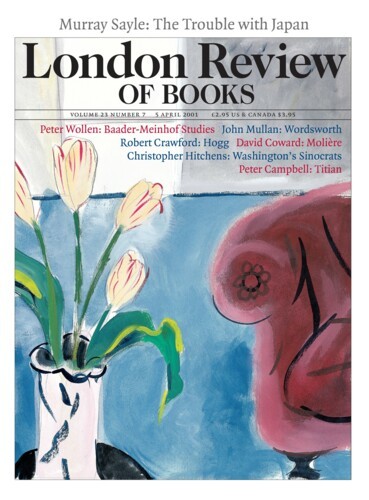Poem: ‘Resistance Days’
Derek Mahon, 25 April 2002
for John Minihan
Nous nous aimerons tous et nos enfants riront De la légende noire où pleure un solitaire.
Paul Eluard
The sort of snailmail that can take a week but suits my method, pre-informatique, I write this from the St Louis, rm 14 – or type it, rather, on the old machine, a portable, that I take when I migrate in ‘the run-up to Christmas’. Here I sit...





